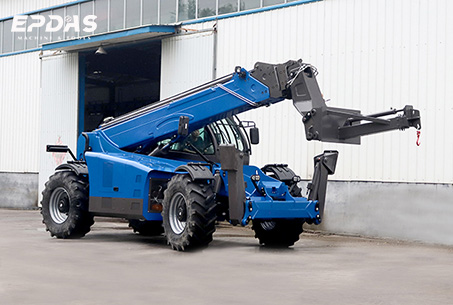Yes,Gravel Is Typically Needed Under Concrete,As Gravel Can Provide Drainage,Support,And Cost-Effectiveness.Its Primary Purpose Is to Create a Stable Foundation That Enhances the Strength and Longevity of the Concrete Structure.
Here Are Some Considerations:
1.Drainage
Gravel Provides Excellent Drainage Underneath Concrete,Which Helps Prevent Water from Accumulating Under the Slab.Without Proper Drainage,Water Can Get Trapped,Which Can Cause the Concrete to Crack,Shift,or Even Erode Over Time.
2.Prevents Cracking
A Gravel Base Allows for Better Distribution of Weight,Reducing the Risk of the Concrete Slab Settling Unevenly or Cracking Due to Pressure from the Ground Below.It Also Helps Accommodate Any Movement or Shifting of the Soil Beneath the Concrete.
3.Provides Stability
Gravel Creates a Stable Foundation for the Concrete.The Angular Shape of Crushed Stone or Gravel Helps It Interlock,Providing Solid Support for the Slab.This Stability Is Especially Important for Large Structures Like Driveways,Sidewalks,and Foundations.
4.Reduces Moisture Issues
Gravel Helps to Prevent Moisture from Seeping Up Into the Concrete Slab,Which Can Cause Issues Like Cracking,Spalling (Surface Deterioration),or Even Mold Growth.Proper Moisture Control Is Crucial for the Longevity of the Concrete.
5.Compaction
Gravel Compacts Well and Provides a Solid Surface for the Concrete to Rest On.This Ensures That the Concrete Doesn’t Shift or Settle Unevenly,Which Could Lead to Damage Over Time.
Without Crushed Stone,the Concrete Slab May Shift Over Time Due to Soil Movement or Uneven Compaction.This Could Result in Unsightly Cracks,Structural Failure,and the Need for Costly Repairs.
For Most Concrete Slabs,the Recommended Gravel Depth Is Around 4 to 6 Inches.However,for Heavy-Duty Applications Like Driveways or Foundation Slabs,the Gravel Base Might Need to Be 6 to 8 Inches Deep.Here Are Some Commonly Used Materials:
Pea Gravel:This Is Smooth,Rounded Gravel Often Used in Small-Scale Projects.While It Offers Good Drainage,It Is Not Always the Best for Supporting Large Slabs,as It May Shift Under Heavy Loads.
Crushed Stone:This Angular Material Interlocks Better Than Rounded Gravel,Providing Superior Stability and Support.Crushed Stone Is the Preferred Option for Concrete Foundations,Driveways,and Large Slabs.
Limestone:Crushed Limestone Is Another Popular Option.It Compacts Well and Provides Good Support for Concrete,but It Can Be Prone to Erosion Under Certain Conditions.
Crushed Rock or Granite:For Heavy-Duty Applications,Crushed Granite or Other Dense Rocks May Be Used.These Materials Provide the Most Durable Base for Concrete Slabs That Will Bear Heavy Loads.
Concrete Batching Plants,or Mixing Plants,Are Automated or Semi-Automated Facilities That Produce Concrete Through the Precise Measurement and Mixing of Raw Materials.These Plants Typically Include Gravel (and Sometimes Crushed Stone),Sand,Cement,Water,and Admixtures,Which Are Blended in Specified Proportions to Achieve the Desired Concrete Properties.
The Primary Advantage of Using Concrete Batching Plants Lies in Their Ability to Ensure Consistent Concrete Quality. By Automating the Mixing Process,These Plants Minimize Human Error,Enabling the Production of Concrete That Meets Stringent Specifications and Standards. Additionally,Batching Plants Offer Flexibility in Terms of Output Capacity,Making Them Suitable for a Wide Range of Projects,from Small Residential Developments to Large-Scale Infrastructure Projects.
As Technology Advances,Innovations in Automation,Sensor Technology,and Data Analytics Are Enhancing the Precision and Efficiency of Concrete Production.For Instance,Real-Time Monitoring Systems Can Now Track Material Quality and Mix Proportions,Ensuring Consistent Concrete Quality Throughout the Production Process.The Integration of Gravel and Concrete Batching Plants Is Becoming Increasingly Sophisticated.
Moreover,Researchers Are Exploring Alternatives to Traditional Gravel,Such as Recycled Materials and Industrial By-Products,Which Can Be Processed and Utilized Within Batching Plants.By Harnessing the Unique Properties of Gravel and Leveraging the Advanced Capabilities of Batching Plants,the Industry Is Paving the Way for More Efficient,Sustainable,and Resilient Structures.





